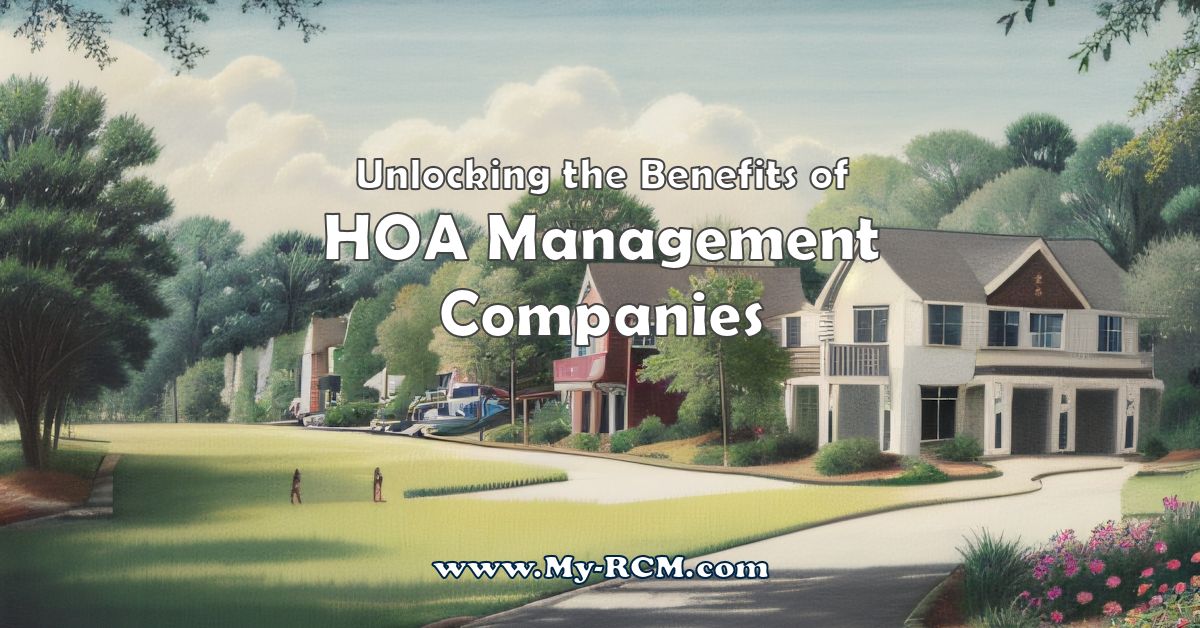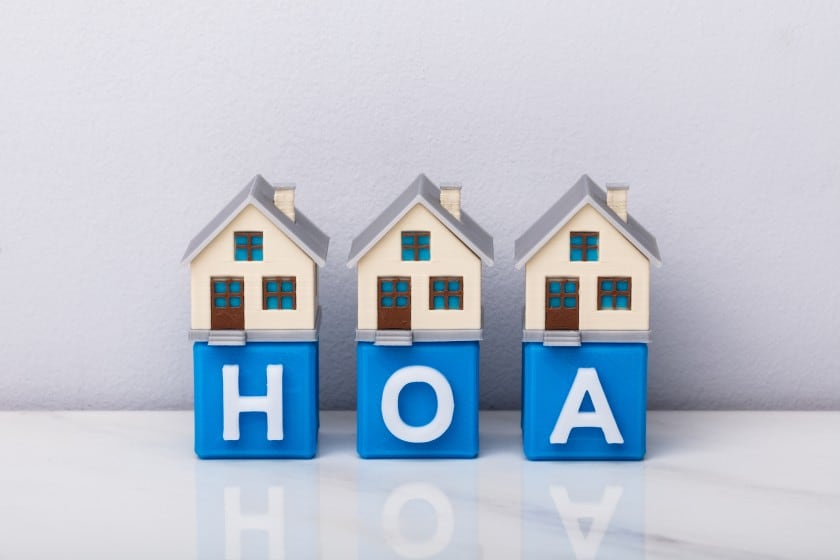The Essential Function of HOA Management in Upholding Area Standards and Laws
Homeowners Organizations (HOAs) serve a pivotal function in preserving neighborhood criteria and regulations, working as the guardian of shared values and aesthetics within neighborhoods. Their responsibilities expand beyond simple enforcement; they cultivate a feeling of belonging and responsibility among residents. By meticulously taking care of guidelines and resolving non-compliance, HOAs not just guard building worths yet likewise grow a setting where communication and partnership can prosper. Nonetheless, the performance of these management strategies raises essential inquiries regarding governance, resident interaction, and the equilibrium in between law and individual liberty. What implications do these characteristics hold for the future of community living?
Importance of HOA Monitoring
The importance of reliable HOA administration can not be overstated, as it plays an important role in maintaining the overall top quality and charm of an area. Property Owners' Organizations (HOAs) serve as the backbone of household areas, providing structure and organization that fosters a harmonious living setting. With effective administration, HOAs guarantee that community standards are upheld, thus securing residential property worths and improving homeowners' lifestyle.
A well-managed HOA can help with open interaction among residents, address grievances immediately, and develop a sense of belonging. It establishes guidelines and guidelines that reflect the area's values, making sure constant maintenance of shared areas and features. Furthermore, efficient administration aids in economic preparation and source allotment, which is essential for the sustainability of community projects and upkeep.
Moreover, a reliable HOA can advertise neighborhood involvement by organizing occasions and fostering cooperation among citizens - austin hoa management. This not only strengthens connections however likewise urges active participation in decision-making procedures. Ultimately, reliable HOA administration is important for cultivating a vivid, appealing, and natural neighborhood that satisfies the requirements and expectations of its residents
Trick Duties of HOAs
Regularly, Home Owners' Associations (HOAs) think a series of crucial responsibilities that are important for the smooth operation and upkeep of a community. One of the primary tasks of HOAs is to take care of the financial elements of the area, consisting of budgeting, accumulating dues, and keeping get funds for future fixings and enhancements. This economic oversight makes sure that the community stays lasting and properly maintained.
Additionally, HOAs are liable for preserving typical locations, such as parks, swimming pools, and landscaping. This includes normal upkeep, fixings, and improvements to make sure these spaces continue to be eye-catching and practical for locals. Interaction is also an essential facet of HOA responsibilities; they need to maintain property owners educated concerning community news, upcoming meetings, and adjustments to guidelines or plans.

In addition, HOAs commonly facilitate community events and tasks, cultivating a feeling of belonging and involvement among homeowners. They may likewise deal with management tasks, consisting of record-keeping and conformity with state and regional guidelines. Through these obligations, HOAs play an important function in advertising a well-managed and natural area, ultimately improving home worths and homeowners' quality of life.

Enforcing Community Criteria
To preserve an unified living setting, HOAs play a crucial role in applying area standards. These standards, typically outlined in governing papers such as the Statement of Constraints, conditions, and commitments (CC&R s), are designed to protect residential property values, make certain visual uniformity, and promote a sense of area among locals. HOAs have to make sure that all homeowners comply with these standards to create a well-kept neighborhood.
Enforcement systems can differ, yet normally include regular evaluations of properties, communication with residents regarding violations, and the charge of penalties for non-compliance. Such measures may include fines, requests for rehabilitative activity, or, in severe cases, legal proceedings. An aggressive method to enforcement not only hinders prospective infractions yet additional hints also fosters a culture of liability among citizens.
Additionally, transparency in the enforcement procedure is vital. HOAs need to plainly communicate assumptions, criteria, and consequences to all property owners. This clarity aids to mitigate misconceptions and guarantees that citizens know their obligations. Ultimately, reliable enforcement of area criteria by HOAs is vital for keeping the overall lifestyle within the area and maintaining the values that locals have bought their homes.
Conflict Resolution Methods
Effective problem resolution strategies are vital for maintaining a participating and relaxed area within home owners' organizations (HOAs) HOAs usually work as the first line of protection in dealing with disputes that emerge amongst citizens. Executing proactive communication practices is crucial; this consists of developing clear networks for homeowners to voice issues and complaints. Regular meetings and area discussion forums can promote open dialogue, permitting participants to reveal their viewpoints and seek good understanding.
Additionally, arbitration plays a considerable duty in solving disputes (austin hoa management). Neutral third-party arbitrators can assist promote discussions and overview events towards a joint service. This approach emphasizes concession and cultivates a sense of community, instead than allowing conflicts to rise into controversial fights
Furthermore, establishing and implementing a clear set of policies and treatments for taking care of problems is vital. These guidelines ought to be communicated properly to all locals, making certain everybody recognizes the process for looking for and lodging grievances resolution. Providing conflict resolution training for board participants and community leaders equips them with the essential skills to manage disagreements properly, making sure that disputes are dealt with agreeably and in conformity with the area's requirements and regulations.
Enhancing Building Values
Preserving harmonious relationships amongst residents not only cultivates a sense of area yet also plays a significant role in improving residential property worths within homeowners' associations (HOAs) Efficient HOA management makes certain that area requirements and laws are supported, creating a setting where residential or commercial property maintenance is focused on. Well-kept typical locations, adherence to architectural guidelines, and prompt enforcement of policies add to an attractive area that brings in potential buyers.

Furthermore, routine maintenance and renovation tasks, such as landscape design and center upgrades, mirror positively on residential or commercial property worths. HOAs that properly handle spending plans to money these campaigns show a commitment to lasting value conservation.
Eventually, an HOA that prioritizes community relations and residential property criteria develops a desirable living atmosphere. This not only advantages current locals however additionally positions the area positively in the actual estate market, making sure that building values remain attractive and robust to future house owners.
Conclusion
In final thought, HOA management is necessary for keeping neighborhood standards and laws, therefore link promoting an unified living environment. With the enforcement of guidelines, normal home evaluations, and reliable problem resolution approaches, HOAs play a critical duty in enhancing property worths and promoting openness amongst locals. The positive measures implemented by HOAs not only secure the aesthetic integrity of neighborhoods but also add to a cohesive environment that sustains open communication and collaboration among all homeowners.
Through efficient monitoring, HOAs make certain that community criteria are upheld, therefore shielding residential or commercial property worths and boosting homeowners' quality of life.
Through these duties, HOAs play a crucial role in advertising a cohesive and well-managed community, ultimately improving residential property values and homeowners' top quality of life.
Inevitably, effective enforcement of neighborhood criteria by HOAs is vital for maintaining the general top quality of life within the community and supporting the worths that homeowners other have spent in their homes.
Providing dispute resolution training for board members and neighborhood leaders outfits them with the required abilities to manage disputes efficiently, making certain that disputes are settled amicably and in accordance with the area's criteria and regulations.
Maintaining unified partnerships among locals not only cultivates a sense of area but also plays a considerable role in enhancing residential property values within house owners' associations (HOAs)
 Barret Oliver Then & Now!
Barret Oliver Then & Now! Ben Savage Then & Now!
Ben Savage Then & Now! Brian Bonsall Then & Now!
Brian Bonsall Then & Now! Danica McKellar Then & Now!
Danica McKellar Then & Now! Bo Derek Then & Now!
Bo Derek Then & Now!